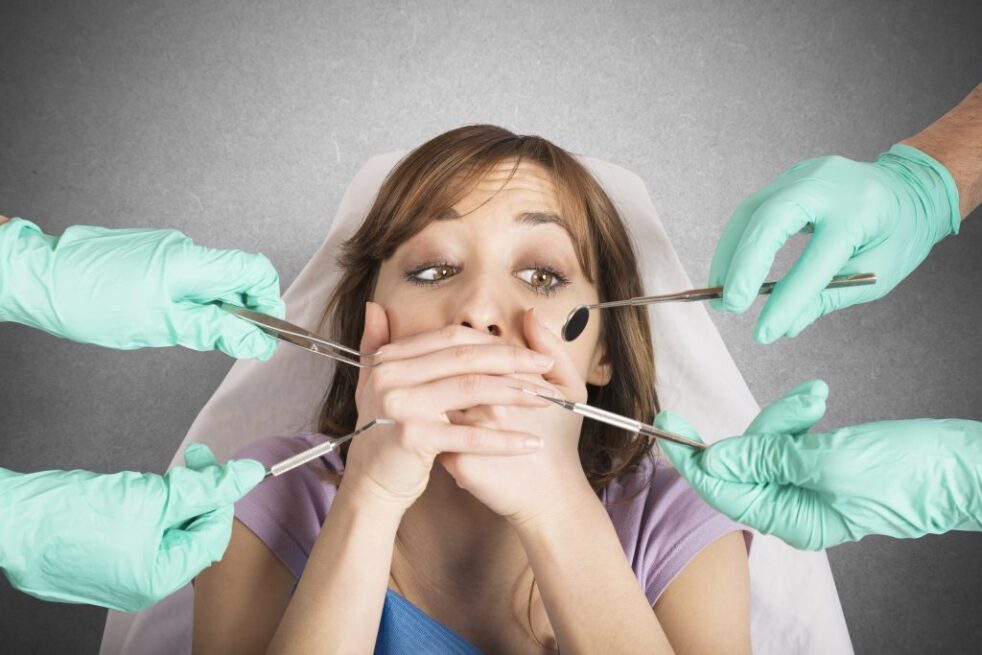I thought I’d write this post because I have the dentist this afternoon and am starting to get a little bit anxious about it. I don’t suffer greatly for anxiety, but even so I can feel it creeping in as I ask myself questions about my dentist appointment later. Where will I park? Where will I sit in the waiting room? Do I need to wear a face mask? If dental anxiety is something that affects you, then read on as I share advise on how to cope with it.
Dental anxiety is a common condition that affects many people, preventing them from receiving the dental care they need. It is an overwhelming fear of visiting the dentist, which can be triggered by a traumatic past experience, fear of pain, or a general fear of the unknown. Dental anxiety can cause physical symptoms such as sweating, shaking, and increased heart rate, and can even make it difficult to book and attend dental appointments. However, it is important to understand that dental anxiety can be managed and overcome with the right approach.
Communication
One of the best ways to cope with dental anxiety is through communication. It’s important to talk to your dentist and let them know about your feelings of anxiety. A good dentist will understand your concerns and work with you to make your visit as comfortable as possible. They may offer you the option of nitrous oxide (laughing gas) or oral sedation to help you relax during the appointment. They can also explain the procedures in detail, so you know exactly what to expect, eliminating the unknown elements.
Self-care
Another way to cope with dental anxiety is through self-care. Practice deep breathing exercises or meditation before your appointment to help calm your nerves. You can also listen to calming music or use a stress ball to keep your hands occupied during the appointment. Additionally, it can be helpful to book dentist appointments at a time of day when you are typically more relaxed, such as late in the morning or early in the afternoon.
Exposure therapy
An effective technique for coping with dental anxiety is exposure therapy. This involves gradually exposing yourself to the feared situation and learning to manage the anxiety through relaxation techniques and positive reinforcement. You can start by looking at dental-related images or videos, then progress to visiting the dentist for non-invasive procedures, such as teeth cleaning. With each exposure, you will become more comfortable and confident in your ability to handle the situation.
Relaxation techniques
Relaxation techniques will also help to get rid of that anxiety. Deep breathing, meditation, and visualisation are all effective methods for calming the mind and reducing stress. You can also try progressive muscle relaxation, which involves tensing and then relaxing different muscle groups to release tension. These techniques can be used both before and during your dental appointment to help you feel more relaxed and calm.
Distract yourself
An effective way to remove the anxiety you may get at the dentist is to simply distract yourself during the appointment. Listening to music or an audiobook, watching a movie, or even squeezing a stress ball can help to take your mind off of what is going on and therefore reduce your anxiety.
Cognitive behavioural therapy
If your dental anxiety is particularly sever, then another strategy that can be used to cope with it is cognitive-behavioral therapy (CBT). This is a type of therapy that focuses on identifying and changing negative thoughts and behaviors. A therapist can help you to identify why it is that you fear the dentist and then help you overcome this fear in a way that makes you feel safe.
Specialist dentists
Finding a dentist that specialises in treating patients with anxiety is also a great idea if you have particularly severe dental anxiety. These dentists have special training and experience in helping patients relax and feel comfortable during their visits. They may also offer additional services such as hypnosis, which will help calm you down so you can get on with your appointment and ultimately live your life.
Edit: I’ve just got back from my dentist appointment and now feel a bit silly for even worrying about it. There was plenty of room to park, lots of chairs in the waiting room and no pressure regarding choosing whether to wear a face mask. Nevertheless I’m glad my appointment is over, as it’s something that I can tick off the list for another 6 months.

i detest the dentists i haven’t been since I was about 20 years old. i dread to think what state my teeth will be in now